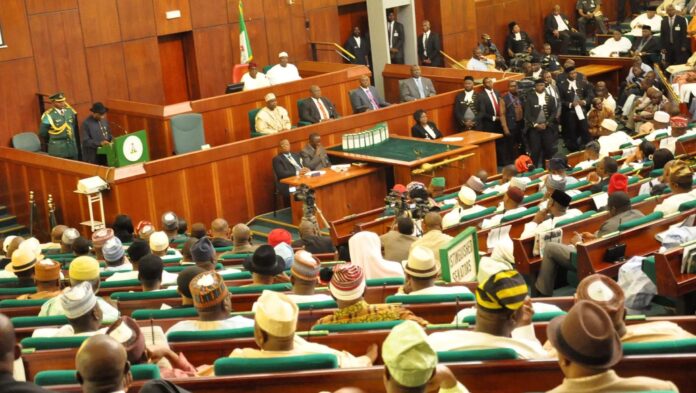The House of Representatives has dismissed a key constitutional amendment that proposed a rotation of the presidency and vice presidency across Nigeria’s six geopolitical regions.
The bill was one of several constitutional changes on the agenda, all of which failed to pass during Tuesday’s legislative session.
Though rejected, the House agreed to reconsider the bills individually on Wednesday, instead of debating them collectively.
Initially, members waived standard procedures to allow for simultaneous discussions of the seven listed proposals.
However, debate gravitated toward the most polarising bill, the regional rotation of the highest executive offices.
Lawmakers sharply disagreed on the proposal. Deputy Minority Leader Aliyu Madaki led the opposition, arguing that the rotation concept was redundant, as Nigeria already uses federal character principles to promote inclusivity.
He maintained that political parties are equipped to ensure equitable power sharing.
Sada Soli (APC, Katsina) doubted the practicality of zoning, saying it could compromise merit and worsen inter-regional competition.
Shina Oyedeji (PDP, Oyo) shared similar fears, warning that constitutionalising rotation would provoke rivalry even within geopolitical zones.
Bello Mohammed El-Rufai questioned the bill’s implications in the event of presidential death and raised constitutional rights concerns.
“Marginalisation will always be claimed in Nigeria,” he warned, cautioning against embedding such a divisive policy.
Olumide Osoba (APC, Ogun) added that compelling parties to zone candidates would intrude on their independence.
Yet, not all lawmakers disagreed. Minority Whip Ali Isa supported the rotation model, advocating for its extension to governorship roles to reflect senatorial districts.
He also emphasised the importance of equitable access to leadership, calling for the 2027 presidency to rotate to the North-East. Clement Jimbo (APC, Akwa Ibom) backed the amendment as a corrective step for longstanding injustices, especially against minority groups.
Despite some support, the bill, along with six others, was voted down during a voice vote and did not move to the next stage.
Among the other rejected bills were proposals to shift political party oversight from INEC to a new Registrar General, empower State Auditors-General to enhance grassroots governance, and establish a new local government area—Ughelli East—in Delta State.

